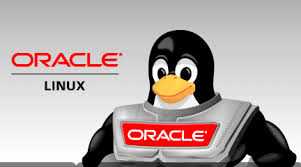Oracle Linux 7 Advanced Administration

Oracle Linux 7 Advanced Administration Course Overview
This highly practical instructor led Oracle Linux 7 Advanced Administration training course is designed to give delegates practical experience in the administration of an Oracle Enterprise Linux (OL) system. With a strong emphasis on practical hands on training, this course will teach further essential administrative tasks required to successfully administer an Oracle Linux system.
Targeted to closely follow the official Oracle certification curriculum, this course together with the Administering Oracle Linux 7 course will enable the delegate to work towards achieving the Oracle Certified Professional, Oracle Linux 6 System Administrator (1Z0-105) qualification.
-------------------------------------------------------------------------------------------------------------------------------------
Who will the Course Benefit?
The Oracle Linux 7 Advanced Administration course is suitable for anyone who has acquired basic administration skills from attending the Linux Fundamentals and Oracle Linux 7 Administration course. This will include System Administrators, Support Engineers, Data Centre Managers, System Integrators and other technical IT staff who need to acquire knowledge of the key administration tasks required to administer a Oracle Linux system.
This course will teach many of the necessary skills to enable the delegate to work towards achieving the Oracle Certified Professional Oracle Linux 6 System Administrator (1Z0-105). The course assumes knowledge of the Oracle Linux operating system to at least the level covered in the Linux Fundamentals course and the Oracle Linux 7 Administration course.
---------------------------------------------------------------------------------------------------------------------------------------
Course Objectives
On completion of this Oracle Linux 7 Advanced Administration the delegate will have gained practical experience of the Linux commands, the GUI's and will posses the technical knowledge required to perform Advanced System Administration tasks.
------------------------------------------------------------------------------------------------------------------------------------
This is a Oracle Linux 7 Advanced Administration course by Uplatz.
Oracle Linux 7 Advanced Administration
Oracle Linux 7 Advanced Administration Training Course
Course Introduction
- Administration and Course Materials
- Course Structure and Agenda
- Delegate and Trainer Introductions
Session 1: NETWORK MANAGEMENT AND NAME SERVICES
- Configuring a DHCP server and client
- Configuring a DNS server and client access
- Master/Slave Zones
- Reverse lookup Zones
- Record types and their syntax
- Address Match Lists (acl)
- Configuring a Caching Only Name Server
- DNS in a chroot environment
- Testing a DNS server
- Exercise
Session 2: AUTHENTICATION AND DIRECTORY SERVICES
- What is LDAP?
- Configure access to an LDAP server
- Configure Kerberos
- System Security Services daemon (sss)
- Exercise
Session 3: CENTRALISED AND SECURE STORAGE (ISCSI)
- What is ISCSI?
- Setting up ISCSI Target and Initiator
- Accessing Centralised Storage
- Exercise
Oracle Linux 7 Advanced Administration Training Course
Session 4: CONFIGURE SAMBA SERVICES
- Configure file sharing between hosts with CIFS (Samba)
- Using smbclient and Konqueror to access shares
- Exercise
Session 5: CONFIGURING AND MANAGING SELINUX
- Configuration and customisation of SELinux
- Context types
- semanage, getsebool, setsebool, sealeart and chcon commands
- SELinux log files)
- Exercise
Session 6: FURTHER MANAGEMENT OF STORAGE
- Access Control List (ACL's)
- Use of Extended attributes
- Authentication policies and User Private Groups
- Managing password files
- Using Disk Quota
- Overview of udev
- Exercise
Session 7: ADVANCED SOFTWARE MANAGEMENT
- The Yellow Dog Update, Modifier Tool (YUM)
- Creating a YUM repository
- Building a package
- Yum Plug-ins
- Exercise
Oracle Linux 7 Advanced Administration Training Course
Session 8: PAM MODULES
- What is PAM?
- PAM Configuration
- PAM Authentication Modules
- Exercise
Session 9: BASIC MAIL SERVER CONFIGURATION
- Email Components
- Mail User, Mail Transport and Mail User Agents
- Postfix Configuration
- Configuring a null client using Postfix
- Dovecot - POP and IMAP services
- Exercise
Session 10: DEPLOYING A WEB SERVER
- The Apache and Tux Web Servers
- Apache server configuration files
- Apache Configuration Directives
- Basic Server Configuration
- HTTP and SELinux
- Configuring https
- Exercise
Session 11: LINUX CONTAINERS and DOCKER
- What is a Linux Container?
- What are the advantages of Containers
- Creating and using a container
- What is Docker?
- Installing and configuring Docker
- Exercise
Oracle Linux 7 Advanced Administration Training Course
Session 12: VIRTUALISATION WITH XEN AND KVM
- XEN and KVM differences
- Creating a KVM Virtual Machine
- Managing Linux on a Virtual System
- Exercise
Session 13: INSTALLING ORACLE LINUX USING KICKSTART
- How Kickstart works
- Sections within a Kickstart configuration file
- Pre and Post Kickstart processing
- Creating a Kickstart file
- Creating the Linux Install Server
- Differing ways of starting a Kickstart installation
- Exercise
Session 14: INTRODUCTION TO OCFS2 and CLUSTERWARE
- What facilities are provided by OCFS2 and CLUSTERWARE
- Configuring OCFS2 on Linux
- Configuring Oracle Clusterware
- Clusterware Hardware and Software requirements
- Network configuration
- The voting disk and OCR
- Clusterware Daemons and Log files
- Lesson Review
Oracle Linux 7 Advanced Administration Training Course
Session 15:MANAGING RESOURCES USING CONTROL GROUPS
- What are Control Groups?
- Controlling access to System Resources
- Configuring Control Units
- Exercise
Session 16:CORE DUMP ANALYSIS
- CCore Dump collection with Kdump and Kexec
- Using the crash utility
- Kernel Tuning Parameters
- Exercise
Session 17:DTRACE
- What is Dtrace?
- Dtrace Facilities
- Dtrace Scripts
- Built in Variables
- Exercise








